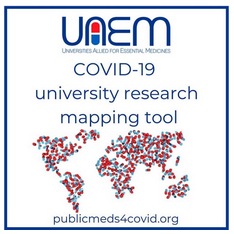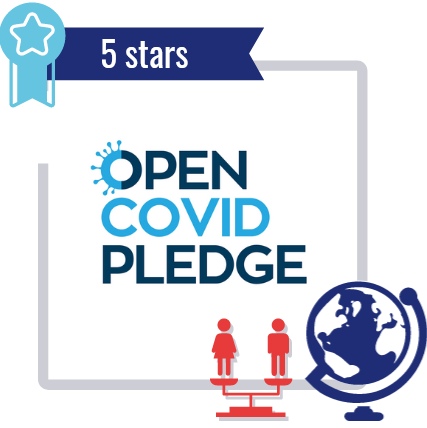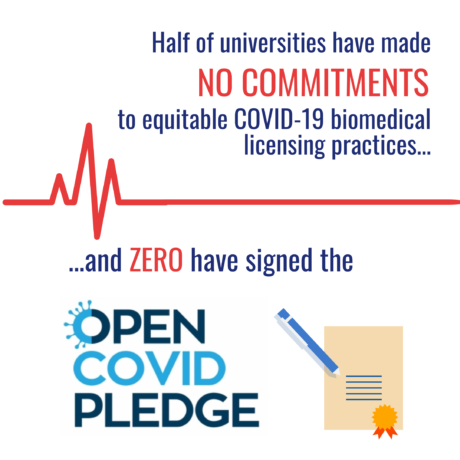
Free the Vaccine
UAEM and C4AA (Center for Artistic Activism)’s Free the Vaccine (FTV) Campaign has released a number of resources in promotion of global access to COVID-19 vaccines. Check out their news page for recent videos, podcasts and articles. FTV has also published a helpful guide that compares the different IP (intellectual property) policies currently adopted by institutions around the world.
PublicMeds4COVID
UAEM, in collaboration with AMSA (American Medical Student Association) and SNMA (Student National Medical Association), released PublicMeds4Covid, a tool that tracks and maps public investment in COVID-19 research on vaccines, diagnostics, and therapeutics. The tool can be used in conjunction with the U.S. Report Card findings to take action and promote access to medicines.

Understanding the various COVID-19 intellectual property policy agreements
These are the different COVID-19 intellectual property (IP) policy agreements and frameworks that U.S. universities have can adopt to promote expedited access to their COVID-19 discoveries:
Best practice frameworks

The Open COVID Pledge (OCP)
Signatories of OCP commit to making their COVID-19 related IP available free of charge. UAEM chapters are encouraged to urge their universities to adopt the Open Covid Pledge. If your university has made previous commitments to global health but has not signed OCP, leverage these findings by pointing out their current hypocrisy using social media campaigns and petitions.

The Coronavirus Technology Access Pool (C-TAP)
The World Health Organization’s (WHO) C-TAP compiles the pledges of commitment made by various institutions to the WHO’s Solidarity Call to Action to voluntarily share COVID-19 health technologies, knowledge, IP and data. C-TAP draws on data from mechanisms like the United Nation’s Medicines Patent Pool the Technology Access Partnership. OCP signatories are considered part of C-TAP.
Other available frameworks
The Stanford/Harvard/MIT COVID-19 Technology Access Framework
This cross-institutional agreement commits signatory universities to work towards facilitating global access to COVID-19 technologies. It includes non-exclusive and royalty-free IP rights for some COVID-19 technologies in return for licensees’ commitment to widely distribute the products at a low cost. This agreement is time limited to during the pandemic and for a short period afterwards, and uses vague language without providing a draft licensing agreement.

The AUTM COVID-19 Licensing Guidelines
AUTM is a non-profit technology transfer organization that has drafted a set of COVID-19 Licensing Guidelines and encouraged member institutions to endorse them. This agreement promotes the adoption of non-exclusive royalty-free licensing for COVID-19 technologies, however these licenses are time-limited and may convert to commercial licenses after a while. AUTM is not historically seen by UAEM as a solid actor: it is a member of the Bayh-Dole 40 coalition which is lobbying the US government to avoid using the Bayh-Dole Act to lower prices of essential drugs whose costs have become too high for the average American to afford. Additionally, AUTM’s former president recently wrote this article calling out UAEM and Médecins Sans Frontières (MSF), in response to this piece written by UAEM fellow Varoon Mathur. The time limitations, subsequent commercial licensing provisions and weak language of AUTM guidelines, coupled with AUTM’s historically stance on the necessity of equitable and affordable access to medicines, make this pledge the weakest of the available options

